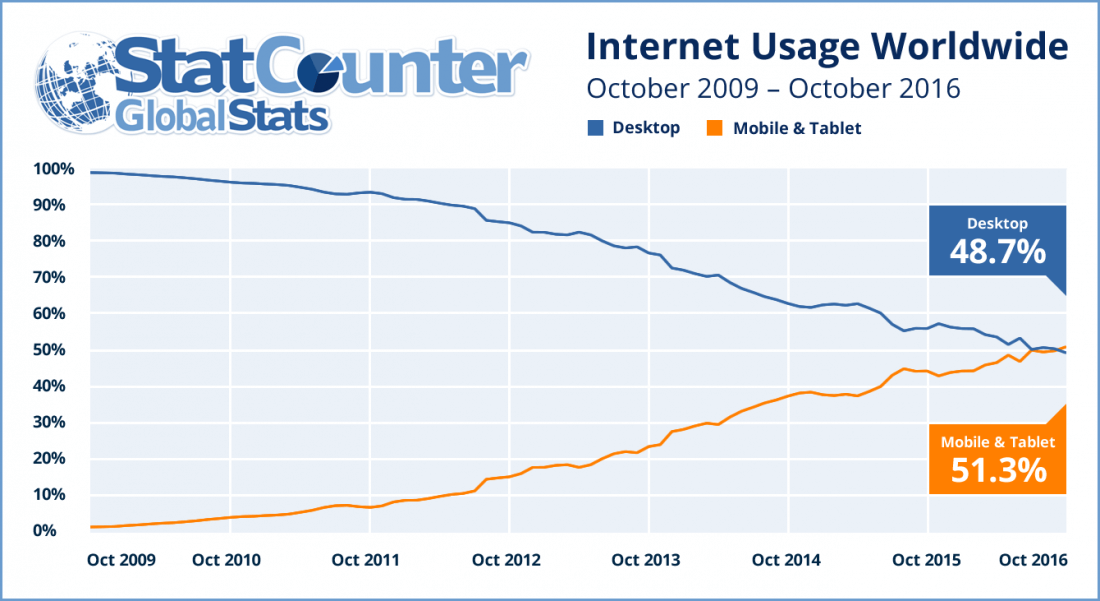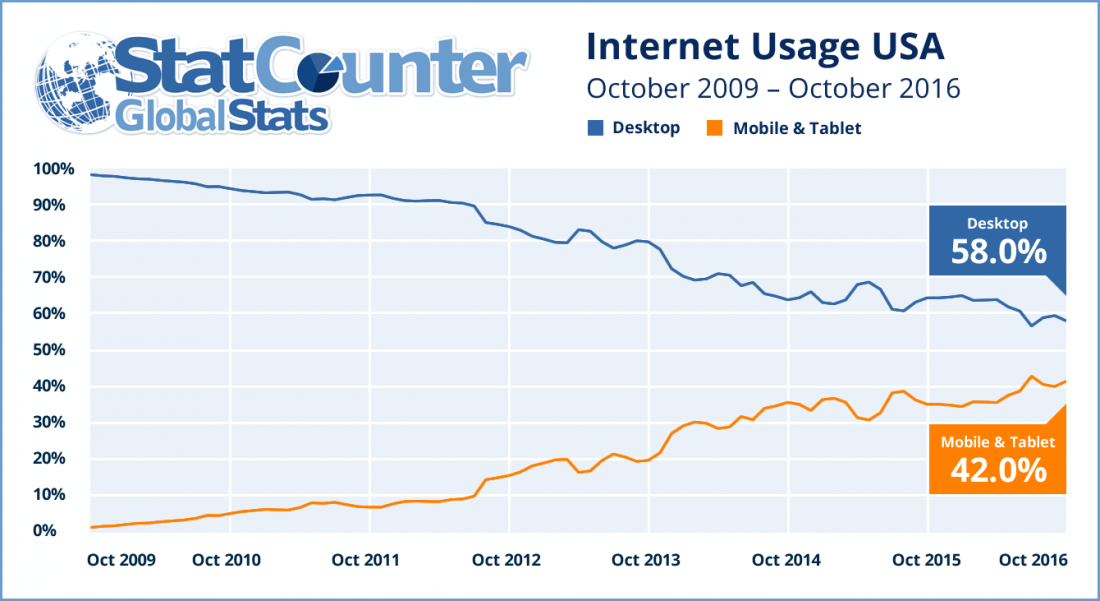The number of people across the world who access the internet from smartphones and tablets has been increasing over the last few years, and now, for the first time, mobile devices have overtaken desktops as the most popular method of browsing the web.
The news comes from monitoring company StatCounter, which found that combined traffic from phones and tablets accounted for 51.3 percent of worldwide internet usage in October, whereas desktop was at 48.7 percent. This marks the first time mobile has been ahead since the company started tracking global browsing habits in October 2009.

The data shows how important it is for organizations to ensure their websites are optimized for mobile use. "This should be a wake-up call especially for small businesses, sole traders, and professionals to make sure that their websites are mobile friendly," said Aodhan Cullen, StatCounter CEO.
Google has been preparing for the shift toward mobile devices for a while. It already prioritizes mobile friendly websites in its mobile search results, while its Accelerated Mobile Pages (AMP) project allows articles from certain publications to load almost instantly on smartphones and tablets. The tech giant revealed last May that more Google searches were being performed on mobile than computers.
Google will put even more focus on its mobile searches over the next few months by creating a separate mobile index that will eventually take priority over the desktop version.

Emerging markets are primarily responsible for worldwide mobile web browsing surpassing desktop. In India, over 78 percent of internet access is done via mobile devices, while in many Western countries such as the US and the UK, desktop continues to stay ahead - though its lead is shrinking all the time. 58 percent of Americans prefer to use the internet on desktop, and it's the platform of choice for 55.6 percent of Brits.

You can see a comparison of every countries' mobile/desktop internet usage here.
